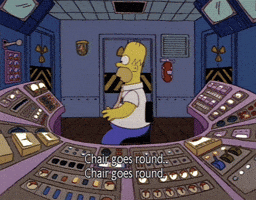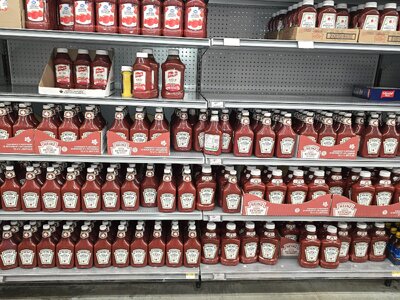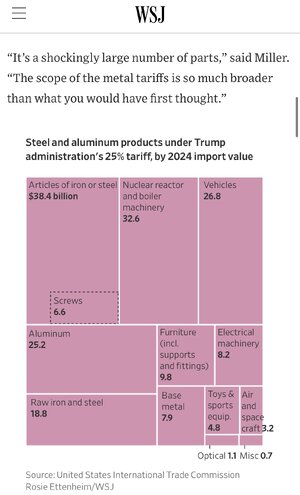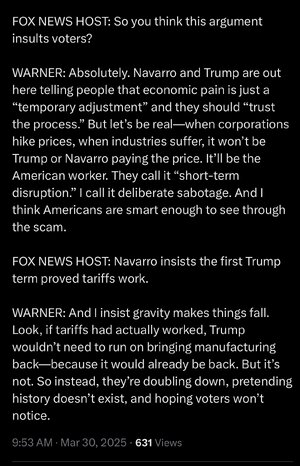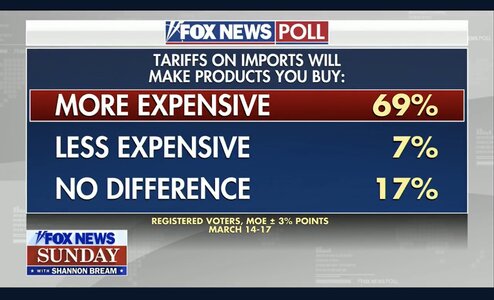Trump says he ‘couldn’t care less’ if foreign automakers raise prices due to tariffs
In an interview with NBC News, President Donald Trump also said he wouldn’t fire anyone involved in the Signal group chat.
In a phone interview with NBC News, President Donald Trump also said he wouldn’t fire anyone involved in the Signal group chat.

www.nbcnews.com
“… Asked what his recent message was to motor industry CEOs, and whether he had
warned them against raising prices, Trump said, “The message is congratulations, if you make your car in the United States, you’re going to make a lot of money. If you don’t, you’re going to have to probably come to the United States, because if you make your car in the United States, there is no tariff.”
When pressed if he told CEOs not to raise prices, as reported in the
The Wall Street Journal, Trump added, “No, I never said that. I couldn’t care less if they raise prices, because people are going to start buying American-made cars.”
Trump continued, “I couldn’t care less. I hope they raise their prices, because if they do, people are gonna buy American-made cars. We have plenty.”
Asked if he was concerned about car prices going up, Trump said, “No, I couldn’t care less, because if the prices on foreign cars go up, they’re going to buy American cars.”
After the interview, an aide to the president followed up with NBC News to say that Trump was referring specifically to foreign car prices. …”
